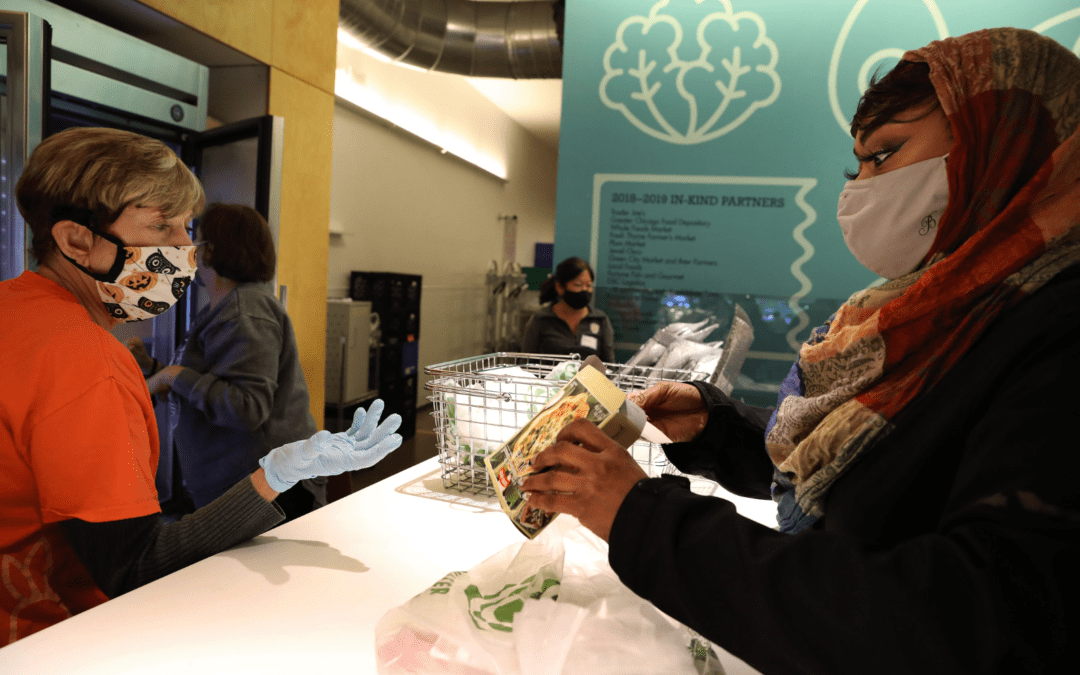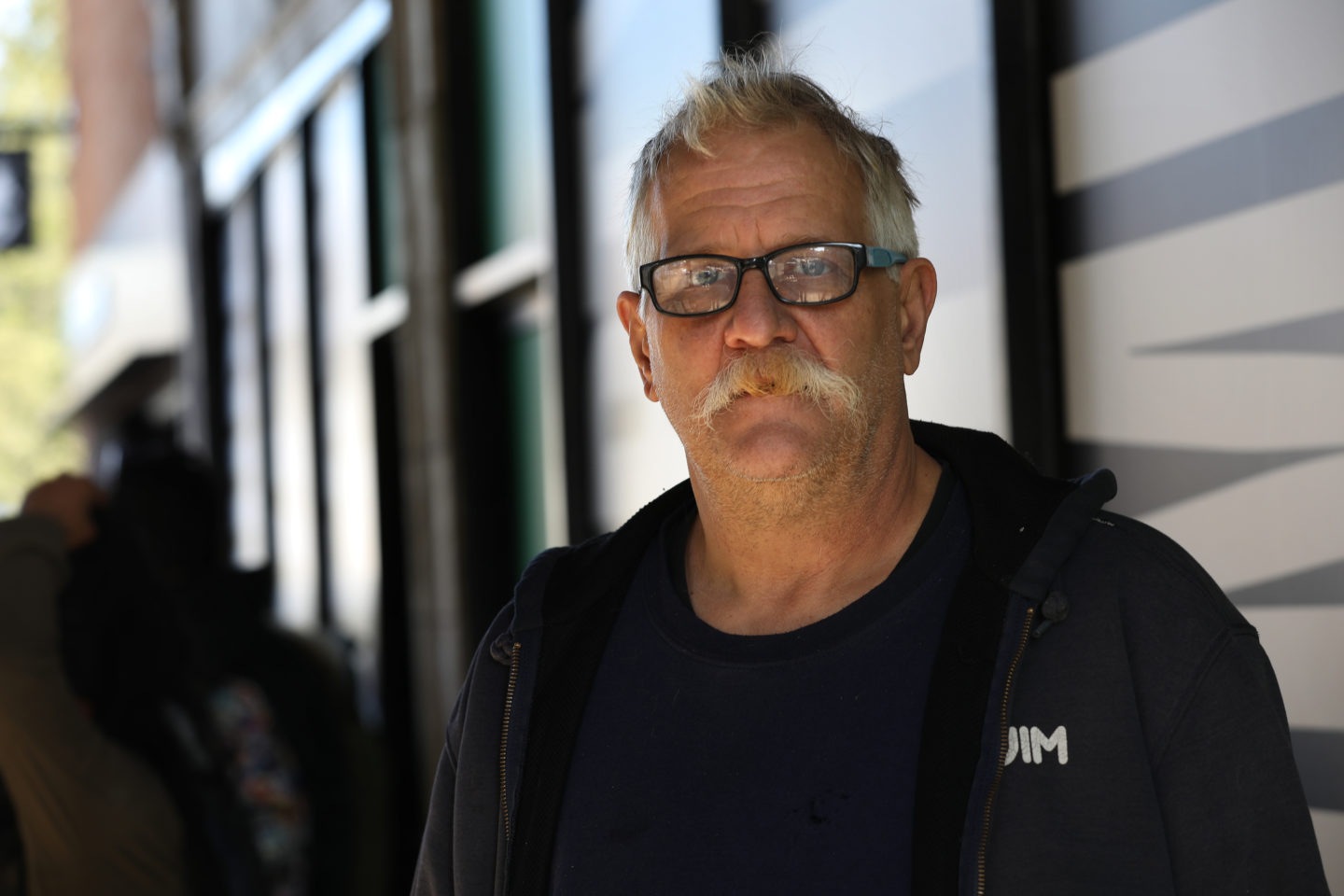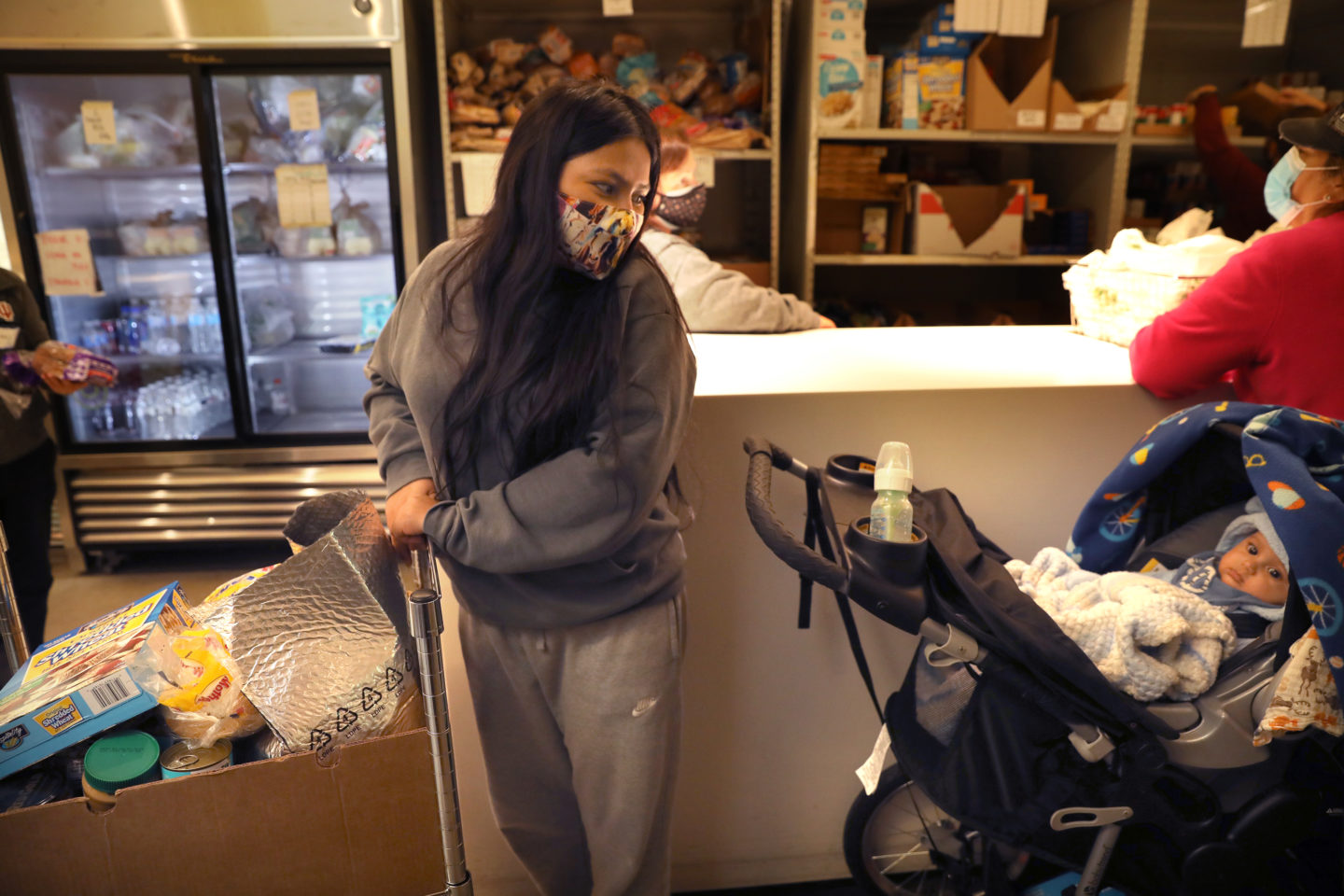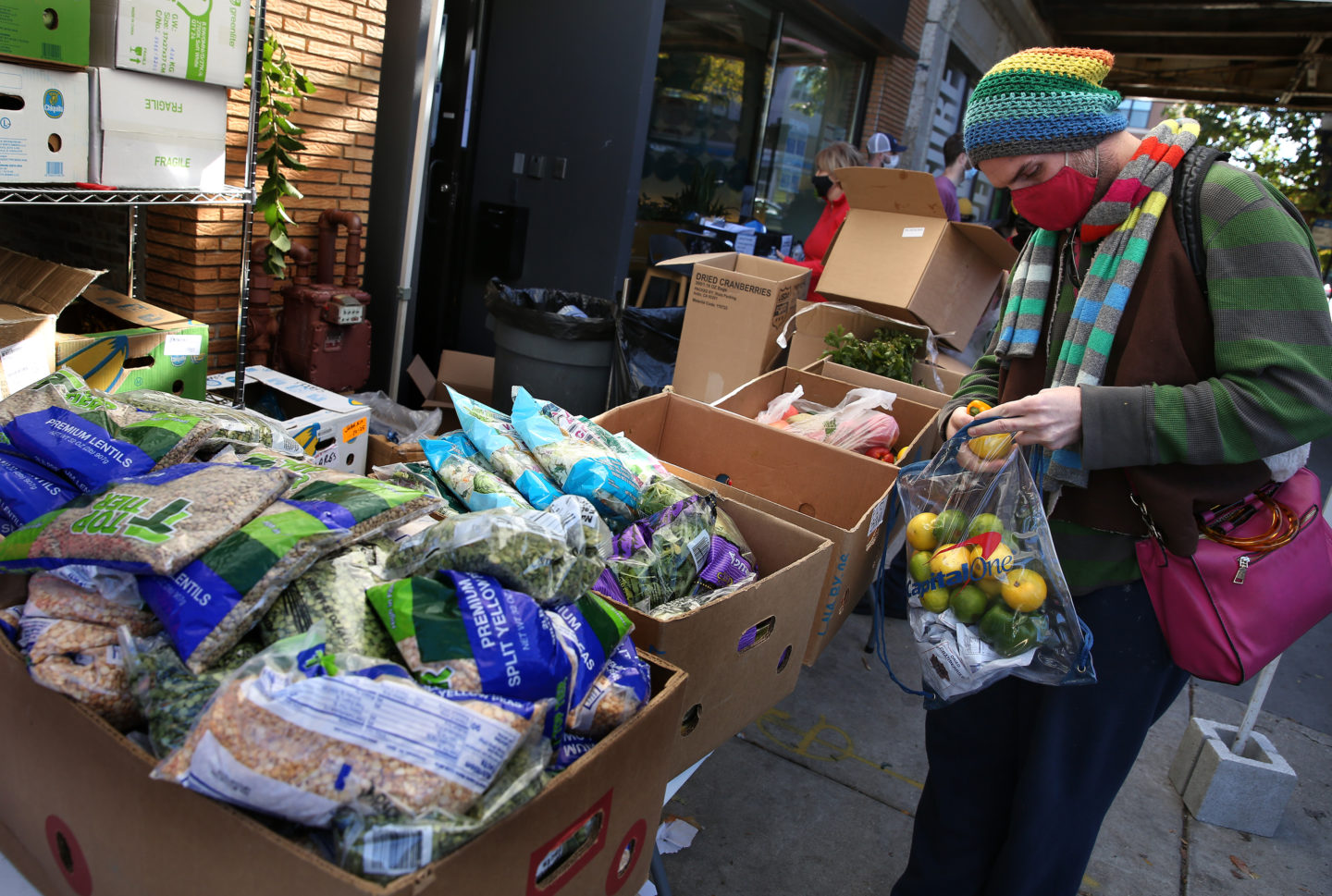Carla Stitt is one of millions of Americans who’ve had their lives and livelihoods disrupted by the ongoing pandemic.
In July 2020, Stitt was laid off from her customer service job at an airline. Since then, she’s been self-employed as a make-up artist, but the work has been inconsistent as events like weddings and proms have been far more sporadic. Finances have been tight.
For the past few months, she’s turned to Nourishing Hope for help with food. A prediabetic, Stitt said she appreciated the access to fresh vegetables and other healthy groceries in a kind and encouraging atmosphere.

Carla Stitt has turned to Nourishing Hope for help while she tries to find full-time employment. (All photos taken by Nancy Stone for Nourishing Hope)
“If it’s a choice between paying rent and coming to the pantry, I’m obviously going to come to the pantry,” said Stitt, 47, who’s currently interviewing for another airline job.
“I don’t understand the whole fear of asking for help,” she said. “Everybody has needs. Take help if you need help.”
Though the economy has improved and the pandemic’s impact has slowed, many people are still trying to find their footing in the ongoing crisis. Visits to Nourishing Hope’s food distributions are still up more than 60 percent as compared to pre-pandemic times.
On a recent fall morning at the Pantry, staff and volunteers hustled to serve a diverse array of people over several hours. Each person or family in line received an ample supply of fresh fruits and vegetables, meat, dairy and other groceries. They were also given bouquets of flowers and pumpkins to brighten their days.
Each person carried something else: A unique story of hardship, grit and perseverance.
For more than 40 years, Jim Heatley has worked as a plumber in Chicago, often being exposed to asbestos and other dangerous materials. It’s taken a serious toll on his health. Last year, at the height of the coronavirus pandemic, he was infected with pneumonia three times, he said, and once more this year.
With medical assistance, Heatley’s health has improved, but he’s had to reduce his workload to part-time. He hopes to return to full-time work.
“This is the big help to me right here,” said Heatley, 61, after emerging from the Pantry with groceries. “They’ve been so nice and friendly and helpful.”
Nourishing Hope provides more than food. Throughout the morning, mental health counselors and social service case managers also sat and talked with people in need of additional support, including job and housing assistance. A longtime volunteer gave children markers to draw faces on pumpkins while they waited for their parents to be done.
Here’s another unsettling data point: Nourishing Hope continues to serve more than three times the number of households with children as it did before the pandemic.
Catherine Mares, 19, pushed a food cart in front of her, while pulling her 4-month-son Isaiah in a stroller behind her. The baby boy was calm and alert, taking in the activities of the busy room with his dark eyes, drawing some fawning attention from passersby.
When Mares’s partner lost his construction job earlier in the pandemic, the couple had difficulty paying their bills. In addition to groceries, the young mother receives diapers, formula and other essential items from Nourishing Hope.
“Everybody’s really nice,” Mares said. “They take their time to make sure you have everything you need.”

Catherine Mares poses for a portrait after receiving food, flowers and other items at Nourishing Hope.
Making progress toward food security — the ability to consistently afford enough food for a healthy lifestyle — can come with setbacks. Take Alex McLaughlin, for example, who recently lost their unemployment benefits when they picked up some catering work. Financially, it amounted to one step forward, two steps back.
“Right now, my situation comes down to job hunting and dealing with financial strain,” said McLaughlin, 37, who uses gender neutral pronouns.
“The only reason there’s any food in the house is being able to come here,” they said.
McLaughlin, who works as both a caterer and a drag performer, has seen both their income and their feeling of community dwindle during the ongoing pandemic. Catering events and opportunities to perform all but vanished beginning last summer.
Still, McLaughlin, who also helps provide for their housemates, has remained upbeat amid the challenges.
They also receive Supplemental Nutrition Assistance Program (SNAP) benefits, which help to buy food. In combination with food received from the Pantry, they’ve been able to cook meals such as lasagne, curry pad thai and fried chicken for the household.
Though times have been tough, McLaughlin isn’t a person inclined toward resignation.
“If I give up, it’s over,” Alex said. “And I don’t do game over very easily.”




